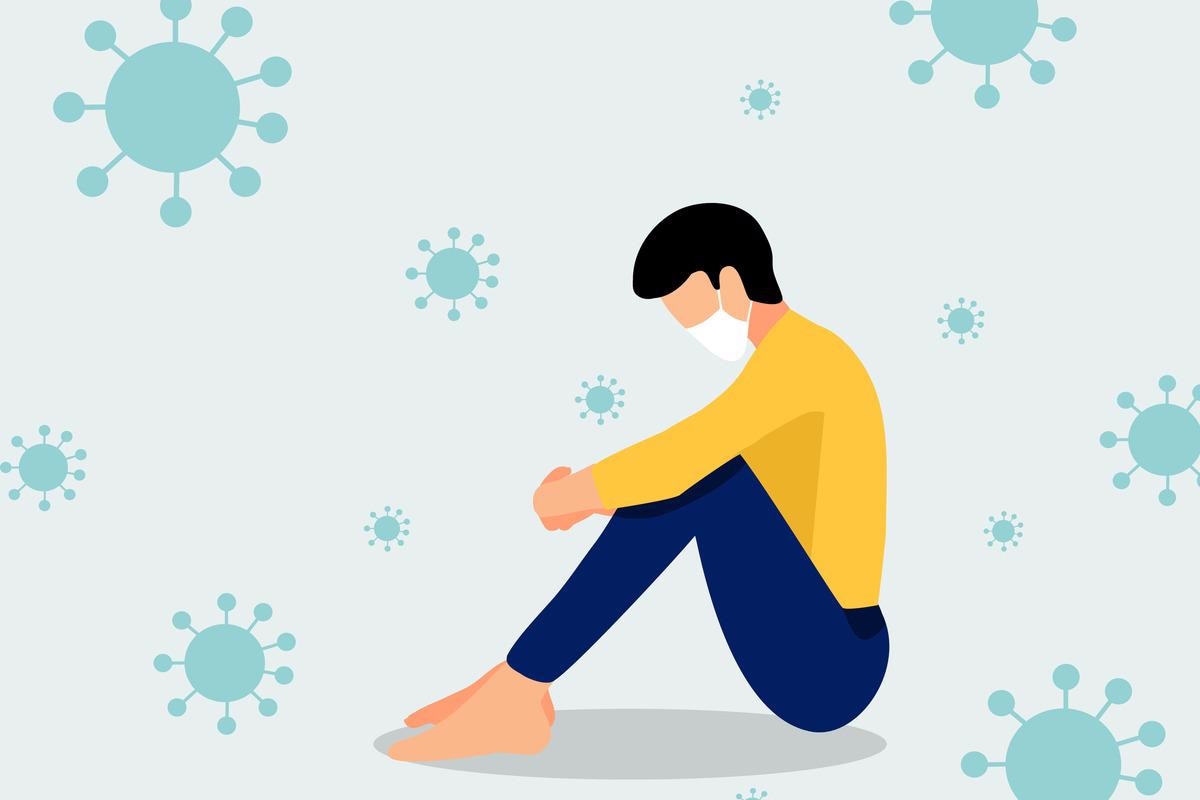Since the emergence of the coronavirus disease 2019 (COVID-19) pandemic in late 2019, significant attention has been given to the mental health aspect of this disease. Out of 4,500,000 documents on COVID-19 available in Google Scholar, more than 1,150,000 were about the mental health impact of the pandemic as of November 2021.
 Study: Mental health indicators in Sweden over a 12-month period during the COVID-19 pandemic. Image Credit: A Plus Vector/Shutterstock
Study: Mental health indicators in Sweden over a 12-month period during the COVID-19 pandemic. Image Credit: A Plus Vector/Shutterstock
However, most of these published data featured small samples and presented preliminary results that were difficult to generalize and hard to replicate. Also, during the first months of the pandemic, the retraction rates were quite alarming. Therefore larger-scale studies need to be carried out to get a more generalized idea of the impact of the pandemic on mental health.

 This news article was a review of a preliminary scientific report that had not undergone peer-review at the time of publication. Since its initial publication, the scientific report has now been peer reviewed and accepted for publication in a Scientific Journal. Links to the preliminary and peer-reviewed reports are available in the Sources section at the bottom of this article. View Sources
This news article was a review of a preliminary scientific report that had not undergone peer-review at the time of publication. Since its initial publication, the scientific report has now been peer reviewed and accepted for publication in a Scientific Journal. Links to the preliminary and peer-reviewed reports are available in the Sources section at the bottom of this article. View Sources
A new study published in the pre-print server medRxiv* aimed to determine the mental health burden of adults in Sweden through the data collected in the Omtanke2020 Study between 9th June 2020 and 8th June 2021.
About the study
The participants for the study were recruited through social media campaigns and online invitations. Only those participants who answered at least three out of the four mental health measures, anxiety, depression, stress, and post-traumatic stress disorder (PTSD), were included in the study. The participants responded to 11 monthly follow-ups after the baseline data collection.
Data on age, relationship, sex, employment status, general lifestyle, region, and health were collected from all the recruited participants. Furthermore, the participants were also asked whether they had joined the study through personal invites or social media campaigns.
Depressive symptoms and their severity were screened by the Patient Health Questionnaire (PHQ-9). Anxiety disorder was screened by the General Anxiety Disorder (GAD-7) scale. PTSD was screened with the help of the COVID-19-adjusted Primary Care PTSD Screen. Stress levels were assessed using the Perceived Stress Scale (PSS-4). The study also measured other mental health indicators such as sleep quantity, loneliness, and general physical and mental well-being. The COVID-19 status was confirmed either by PCR or antibody test and was self-reported.
Study findings
The study results indicated that the age of the participants ranged from 18 to 94 years with the percentage of female participants being higher compared to males. The participants were divided into three groups based on the COVID-19 test and diagnosis, positive, negative, and those who did not undergo tests before participating in the study. 8.5% of the participants were reported to have been diagnosed with COVID-19 before participating in the study.
The results reported that 78.7% of the participants had mild or minimal depressive symptoms, while 9.1 percent had moderately severe or severe depressive symptoms. 85.1% of participants were found to have mild or minimal anxiety symptoms, while 5.7% were found to have severe anxiety symptoms. Depressive symptoms were found to correlate highly with anxiety disorders, happiness, and general mental health, while happiness strongly correlated with mental health compared to physical health.
Regional differences were observed among most of the outcomes. Furthermore, age was inversely correlated to depression, anxiety, and PTSD. Sleep quantity was found to correlate with anxiety and depression negatively. The self-recruited participants showed a higher risk of having mental health outcomes than the invited participants. The COVID-19 infected participants also had a higher risk of having depression and anxiety. Overall, depressive symptoms showed the highest variation during the study period, while PTSD was the most stable.
The current study results were comparable to the reports obtained from other countries. In conclusion, it can be stated that the current study was quite effective in determining the increase in mental health burden during the pandemic. However, more research needs to be carried out to validate the regional differences in Sweden and other countries. Understanding the case of regional differences might help mitigate the mental health burden of the pandemic and set up adequate intervention programs.
Limitations
The study had certain limitations. First, the study was not free of selection bias. Second, the younger-age groups were underrepresented in the study. Third, the recruitment type was related to mental health outcomes.

 This news article was a review of a preliminary scientific report that had not undergone peer-review at the time of publication. Since its initial publication, the scientific report has now been peer reviewed and accepted for publication in a Scientific Journal. Links to the preliminary and peer-reviewed reports are available in the Sources section at the bottom of this article. View Sources
This news article was a review of a preliminary scientific report that had not undergone peer-review at the time of publication. Since its initial publication, the scientific report has now been peer reviewed and accepted for publication in a Scientific Journal. Links to the preliminary and peer-reviewed reports are available in the Sources section at the bottom of this article. View Sources